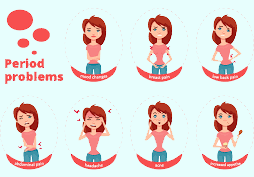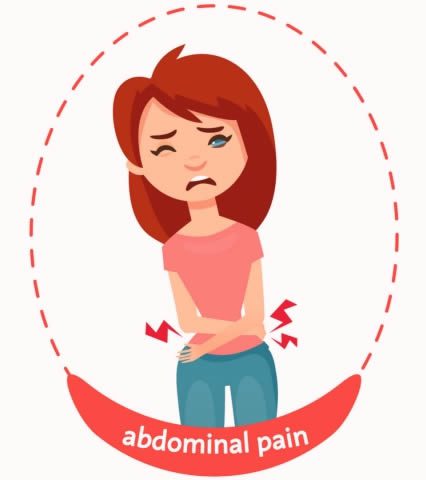Every month every woman experiences flow of blood which comes with excruciating pain, Hence lets throw some light on women’s health with regards to menstrual pains today. Unfortunately, certain diseases are most commonly associated with women than men. Today we educate you on menstrual cramps. This health condition is prevalent when a woman experiences her menstrual cycle.
The medical term for menstrual cramps, is dysmenorrhea is caused by uterine contractions. It is simply painful menstruation, mostly accompanied with cramps. There are however two types of this condition, the Primary condition and Secondary condition. Both types can however be treated.

• Primary dysmenorrhea which refers to common menstrual cramps. Primary dysmenorrhea is the common menstrual cramps that reoccur. They are not aligned with any form of disease. The pain however begins a day or two before menses start or when menstrual bleeding commences. This type of pain is usually felt in the lower abdomen, the back. The pain can either be mild or excruciating which typically last 12 to 72 hours. The pain is typically accompanied by nausea, vomiting, fatigue, or diarrhea.One needs to pay extra attention to this pain once it begins to interrupt with daily activities or chores, as there may or may not be a more pressing medical issue arising from it.
• However, secondary dysmenorrhea is pain that is caused by a disorder in the woman’s reproductive organ, such as endometriosis, adenomyosis, uterine fibroids, or an infection. Pain from secondary dysmenorrhea usually begins earlier in the menstrual cycle and lasts longer than common menstrual cramps. The pain is not typically accompanied by nausea, vomiting, fatigue, or diarrhea. Most of the time it is managed by a qualified doctor or gynaecologist.

Common menstrual cramps may reduce as a woman ages or may disappear after having her first child.
Dysmenorrhea can be treated by taking over the counter (OTC) medications like ibrufen, engaging in a lot of physical activity. Resting adequately when needed. Avoid taking in foods that contain caffeine and a lot of salt. Drinking alcohol in moderation can also help manage dysmenorrhea. Drink lots of water and avoid smoking. You can also massage your lower back and abdomen with a wrapped hot water bottle, this helps reduce pain.
We will be happy to answer your questions or suggestions, kindly visit our facility in Airport Residential area and speak to any of our health care professionals or book an appointment for our women’s clinic by calling 0506777 350. You can also follow us on social media @claronhealth on the various platforms or comment on this blogpost below.
“Ask for what you want and be prepared to get it.”- Maya Angelou

© 2024 Claron Health International.
All Rights Reserved. Privacy Policy
© Copyright 2022 Claron Health International I All Rights Reserved.













